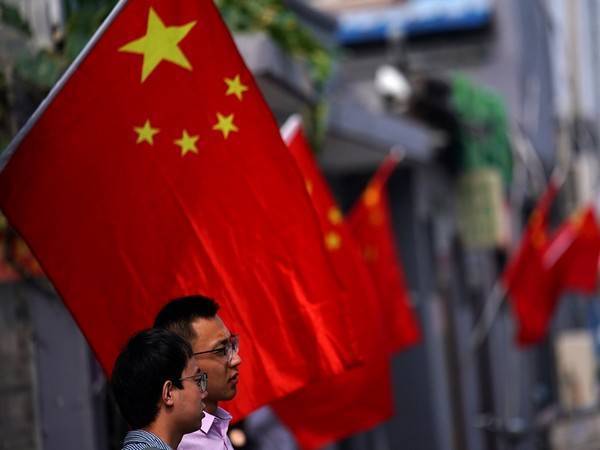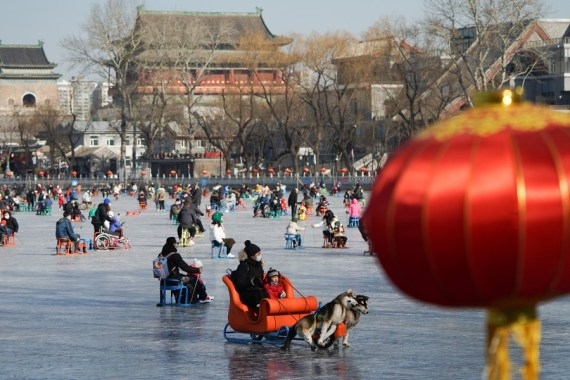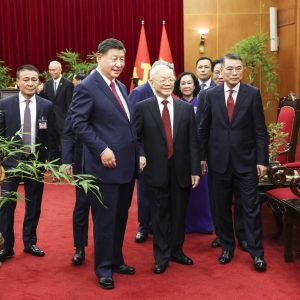The National Day break is one of China’s longest public holidays and is usually a peak season for travel and spending…reports Asian Lite News
Amid a darkening economic outlook that continues to erode consumer confidence, China’s holiday spending plunges to a seven-year low as zero-Covid policy discouraged people from travelling or spending.
Tourist spending for the week-long holiday that started on October 1 declined 26 per cent to 287.2 billion yuan (USD 40.4 billion) year-on-year, according to figures from the Ministry of Culture and Tourism on Friday.
That’s the lowest figure since 2014, and less than half of the pre-pandemic level in 2019, according to government statistics from previous years, reported CNN.
The National Day break is one of China’s longest public holidays and is usually a peak season for travel and spending.
But this year, people were deterred from travelling by a resurgence of the virus and stringent Covid restrictions. Lockdowns and other control measures have intensified in recent weeks, including in some popular tourist destinations. Consumer sentiment also took a hit from rising economic woes, mainly due to Beijing’s ongoing zero-Covid policy and a deepening slump in the property market, reported CNN.
“The soft pack of holiday data is hardly a surprise with new Covid outbreaks and tighter containment measures ahead of the Party Congress,” said Citi analysts in a research report on Sunday, pointing to this month’s gathering of Communist Party elites in Beijing at which Chinese leader Xi Jinping is widely expected to break with tradition and be appointed to a third term in power.

China is the world’s last major economy still enforcing strict zero-Covid measures, which aim to stamp out chains of transmission through border restrictions, mass testing, extensive quarantines, and uncompromising snap lockdowns.
The ruling Communist Party has used the zero-Covid strategy to argue that its political model is superior to Western democracies, and Xi has thrown his weight behind the policy.
For local officials, doubling down on zero-Covid is a way to toe the Party line, demonstrate their loyalty to Xi and prevent any large-scale outbreak that could jeopardize their career weeks before the Party Congress, reported CNN.
As a result of the restrictions, some inside China have taken to calling this year’s holiday “the bleakest Golden Week ever” as people become fatigued with three years of Covid restrictions, choosing instead to stay at home rather than risk getting caught in unexpected lockdowns.
Only 422 million trips were taken during this year’s holiday, down 18 per cent from last year, according to the Ministry of Culture and Tourism.
The number of trips was the smallest since 2014, and far from recovering from pre-pandemic levels, despite the cheapest air ticket prices in five years, reported CNN.
According to analysts, all the weak data point to the heavy damage of Beijing’s zero-Covid policy on consumer spending and the economy.
“The Covid resurgence and risk of being lockdowns discouraged consumption and travel notably,” said Ken Cheung, chief Asian forex strategist at Mizuho Bank.
Separately, a key private survey showed Saturday that China’s massive services activity contracted in September for the first time in five months.
The Caixin services Purchasing Managers Index, which focuses on small and medium-sized enterprises in China’s service industry, dropped to 49.3 last month from 55 in August, according to a statement by S&P Global Ratings. It was the first drop in the index since May. A reading below 50 indicates contraction.
Efforts to curb the spread of Covid across China led to a renewed fall in service sector activity, which disrupted business operations and restricted travel, the statement said.
In particular, employment continued to shrink. The gauge for employment stayed in contraction territory for the ninth consecutive month and hit its lowest point since May, reported CNN. (ANI)














